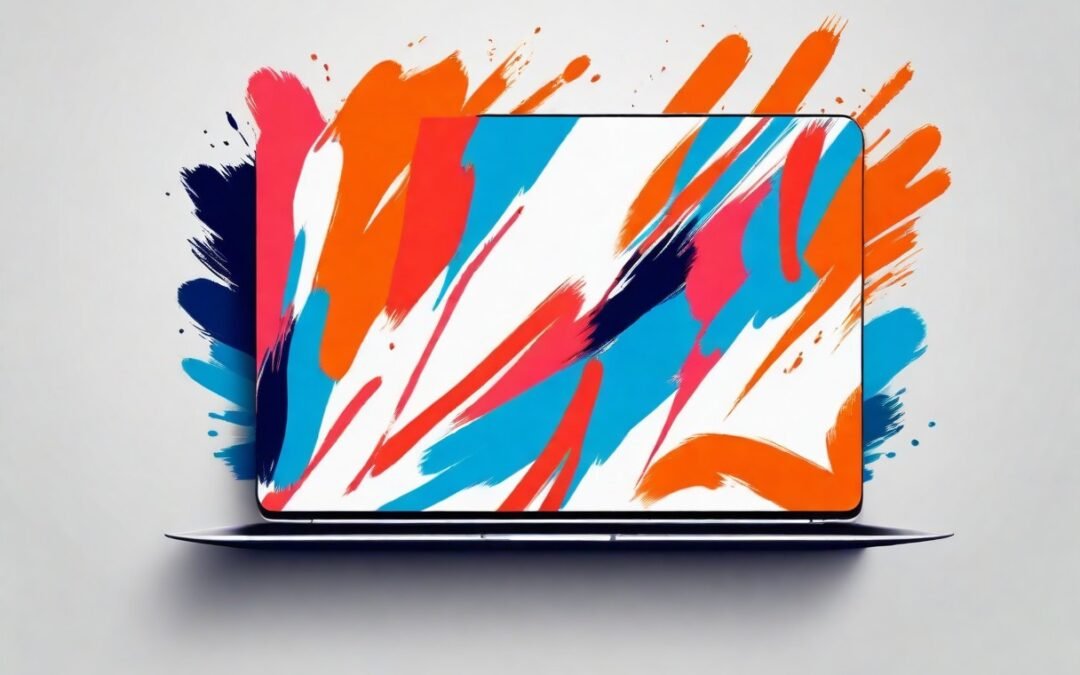Every job interview is different, and there’s no way to anticipate every surprise. However, some essential preparation can assist you in preparing for the most typical interview questions and responses and avoiding common interview hazards. A collection of crucial job interview suggestions is provided here to assist you in landing the job.
As a professional, you should consider job seeking a distinct vocation. Approach your job search with the same systematic attention and problem-solving attitude that you would apply to any assignment or issue at work. Pre-event planning and preparation is a type of interview training that will help you perform at your best and stand out from the crowd.
Things to Remember in a Job Interview
- Your Resume
Before a job interview, a potential employer may only know about you from the material on your CV. Your initial impression got you in the door, and it’s also a crucial link between the application and the interview.It’s a good idea to bring a few additional copies of your resume with you to the interview. More than one person may interview you, and some of the interviewers may not recall the specifics of your résumé. Even the person who picked your name from a long list of contenders could benefit from a reminder. The fact that you have your CV with you demonstrates that you are intelligent and prepared.
Taking the time to acquaint yourself with the CV is more crucial than bringing it. Just typing it doesn’t ensure you’ll remember the details if pressed. When an interviewer asks you a question regarding anything on your CV, you don’t want to look perplexed.
It’s also a good idea to bring any other pertinent papers you might need during the interview. A portfolio of your artistic or literary accomplishments is essential and an excellent way to exhibit your abilities if you join a creative career. Bring a few extra copies of your business card to hand along to the interviewers.
- Appropriate Appearance
The importance of first impressions cannot be overstated, and an appearance that deviates too much from the norm might jeopardize the success of your interview. One of the most crucial job interview recommendations is to ensure you’ve dressed appropriately for the position you’re applying for and the firm you want to work for.
Even if you’re looking for work at a more laid-back and modern organization, it’s advisable to keep your wardrobe professional. Your interviewer may be wearing a Hawaiian shirt and shorts, but you should stick to tried-and-true outfits like a collared shirt, tie, and trousers (for a male) or a jacket-and-skirt combo for yourself (for a woman). Choose neutral colours and avoid distracting patterns, jewellery, or anything else.
You want your credentials and job history to stand out in the interview. Wearing classic, even dull, clothing helps you blend into the background so you can concentrate on what matters most: answering job interview questions.
- The Location’s Directions
It would be best if you came early for the interview to remain calm and attentive. Arriving late or being rushed owing to getting lost or stopped in traffic on an unfamiliar route will set the tone for the rest of the day.Calculate how long it will take you to get to your location and where you will be able to park. If you need to pay for parking, bring cash.
If you’re unsure, leave a little earlier than you need to and spend some time in your car recharging your batteries and mentally preparing for the interview.
That’s considerably preferable to rushing into the interview. It’s also preferable to come to a half-hour early in the lobby and maybe annoy your interviewees or interrupt the employees.If you’re coming in from out of town for the interview, find out how they handle expenditures. The employer may pay for your flight, accommodation, cab fare, and other expenditures in advance or refund you afterwards. It’s better to cover these charges at the end of the interview or the next day. If reimbursement takes a long time to arrive or the firm doesn’t pay for what you expected, have an emergency fund set up to meet the charges.
Unexpected events can occur. Don’t panic if the highway is closed due to a car accident or if you acquire a flat tire on your way to the interview. Call as soon as you can, apologize for the inconvenience, and offer to reschedule. Make sure you schedule the interview for a time you know you’ll be available; it’s preferable to reschedule the interview than to cancel after you’ve already pushed it back an hour.
- The Interviewer’s Name and Position
When scheduling the interview, inquire carefully about who you’ll be meeting with and their position within the organization. Will you speak with a hiring manager, recruiter, upper-level management, or someone different? It’s advisable not to make assumptions about how different organizations manage their interviewing processes. You could or might not wind up working for the individual who conducts your interview.Take some time to investigate the individual who will be interviewing you after you have their name and work position. Look through your network to check if anyone in the business has worked with them. Look for aspects about them that are unique or intriguing that you may bring up as a point of commonality. This helps establish a personal connection, breaks the ice at the start of an interview, and shows that you care enough about the chance to conduct the study.
- Information about the company’s history
“Tell us why you want to work for this firm” is one of the most commonly requested interview questions. “What do you know about our company?” is another typical variant. You don’t want the question to catch you off guard.Knowing anything about the firm and the position you’re seeking can help you answer most job interview questions more thoroughly than if you went blind. You want to give responses demonstrating that you want to work for the organization and understand what you’re putting yourself into. Knowing about the firm helps you customize your responses and demonstrate the value you’ll offer to the career you’re looking for.
When doing research, there are a few factors to keep in mind
– The key members of the company’s workforce. This is especially important if you are in a position of leadership. You’ll want to know about recent personnel changes and who is in control. It’s also beneficial to know something about the company’s history and founders
– The organization’s structure. You’ll want to know what the firm does, its target customer demography, whether it’s private or public, and what divisions and subsidiaries it has
– How the business is doing. You don’t need to know specifics, but you should check to see if the firm is failing or growing, as well as any recent mergers, acquisitions, stock changes, and other large-scale financial transactions
– Information about the job. If you are part of a team developing a new product, adopting a new strategy, or sustaining an existing service, you’ll need to articulate how you can help.
Many other candidates will skip this stage, so the effort to learn about the job you’ll be interviewing for will set you apart from the pack.
- Gaining a Better Understanding of the Hiring Proces
Knowing how to respond to typical interview questions and showcase your talents and qualifications persuasively is essential to a successful interview. Knowing the right questions to ask during an interview is also criticalEmployers like candidates who are actively involved in the recruiting process and who ask questions about the following stages. If you think the interview is going well, you should ask the following follow-up questions:
“Could you walk me through the recruiting process from here?” Hiring is frequently a multi-step procedure that includes many interviews, meetings, documentation, and other factors. Inquiring about the timeframe and following stages will give you a better idea of what to expect.
“Will I be subjected to any tests?” Behavioural interview questions and responses, as well as psychological testing, are used in some jobs. Some may demand a drug or physical test, while others require a math or abstract reasoning exam. Make sure you understand what is expected of you.
“How long do you think it will take to decide?” This question will assist you in determining a timeframe and determining whether or not you have much competition for a position. It can also help you stay calm while waiting for an answer.
Naturally, the questions to ask in an interview will differ depending on the subject and everything that happens during the process. However, don’t worry about being overly bold or forward by asking any of the questions above. The interviewers will gladly assist you through the following steps if you’re a genuine applicant.
- Asking the Right Questions to Prepare for an Interview
Interviews are two-way exchanges, not interrogations. During the interview process, specific questions will likely arise naturally. However, having some questions prepared ahead of time might ensure you acquire all the information you want. Remember that an interview isn’t just about impressing a potential employer; it’s also about determining whether you genuinely want the job and how well you’ll fit in.As part of job interview advice, consider the following categories while formulating questions:
– Questions about the company’s policies, stability, growth, goals, and plans for the future.
– Industry inquiries concerning the industry’s overall health and developments, as well as the company’s link to the industry
– Position-specific questions about the function you’ll be filling, such as duties, travel, and the reporting structure.
– Questions about development possibilities and progression opportunities.
Avoid asking questions that might be answered with a fast internet search; instead, keep your valuable question time for more subjective or job-specific queries. Also, wait until you have an offer to bring up the subject of money; asking about pay too soon will jeopardize your chances of getting the best deal.
Frequently Asked Questions
While it’s a good idea to go into an interview prepared to ask and answer questions, a few areas should be avoided.
One of the most important is the issue of compensation and benefits. It’s a vital factor to consider when deciding whether to take a job. An interviewer may become irritated if you appear overly eager to discuss compensation. Employers prefer employees who genuinely want to work for them rather than those they assume are only there for the money. Early in the interview process, asking questions about income and perks might dominate everything else. This might jeopardize your prospects of moving on in the employment process.
Another reason to avoid discussing money too early in the interview process is that it may jeopardize pay negotiations. The first person to name a number in a negotiation is almost often the loser. You should always insist on the employer bringing up the subject first and never provide a precise amount. Instead, please give them a reasonable range and let them make the first firm offer. This conversation should preferably occur after the job has been accepted or just before it is accepted. In a first interview, discussing compensation is typically unsuitable unless the interviewer brings it up.
When it comes to questions concerning turnover or company culture, one of the most critical job interview recommendations is to be cautious. It’s entirely appropriate to take a broad approach to these topics. Employers may become defensive if you question too explicitly why the position is vacant or how long most employees remain with the organization. It would help if you tried to gain a sense of the room before answering these potentially challenging questions. Suppose you get the impression that the employer is hesitant to discuss it.
Asking what issues you might be able to assist the organization solve is a better way to approach the matter. You may make it evident that you’re inquiring about the company’s health from a position of genuine interest by putting yourself in a proactive role and visualizing yourself already executing the job.
When Should You Leave the Checklist at Home?
Preparation and planning are at the heart of many job interview advice, including those in this article. However, you should use your best judgment when exercising prudence and constraint in your interviewing style. Asking too many questions or coming on too strong might be off-putting, especially if you appear overly eager or unwilling to discuss your personal experiences and career ambitions.
The questions you ask and the ones you answer should never feel one-sided in an interview. Aim for a friendly give-and-take and approach the interview as a dialogue opportunity. It should be a time for you and your interviewer to learn from each other rather than a chance for you to show off all of your business knowledge or quiz the interviewer on minor details.
It’s a good idea to prepare a dozen solid questions ahead of time, but be aware that you might not obtain answers to all of them. You may either rate them mentally or write them down in order of significance. If you bring a pad of paper and a pen to take notes, most interviewers won’t object as long as they aren’t a distraction. This and a copy of your resume may be pulled out and placed on the table for convenient reference.
When it comes to the job hunt, these job interview tips are simply the tip of the iceberg. Interview coaching might assist you in landing high-level employment. One-on-one interview coaching provides far more chances than a list of basic guidelines, and it will assist you in identifying your unique talents and interviewing style. A coach may help you get an advantage over the competition and land the job and money you deserve.




0 Comments